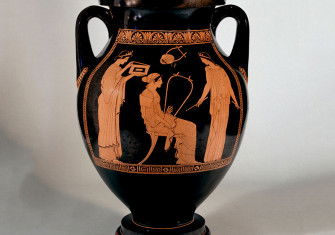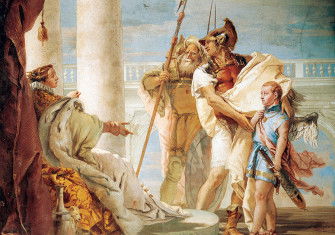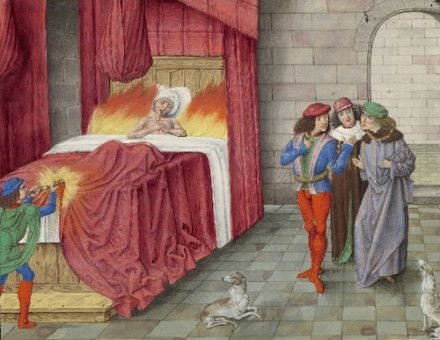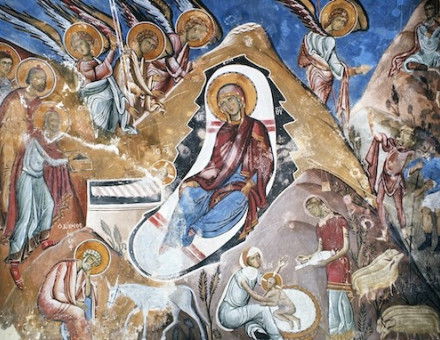Homer and His Iliad by Robin Lane Fox review
Homer and His Iliad by Robin Lane Fox is a masterly survey of the Iliad, its majesty, its pathos and its unparalleled progression from wrath to pity.
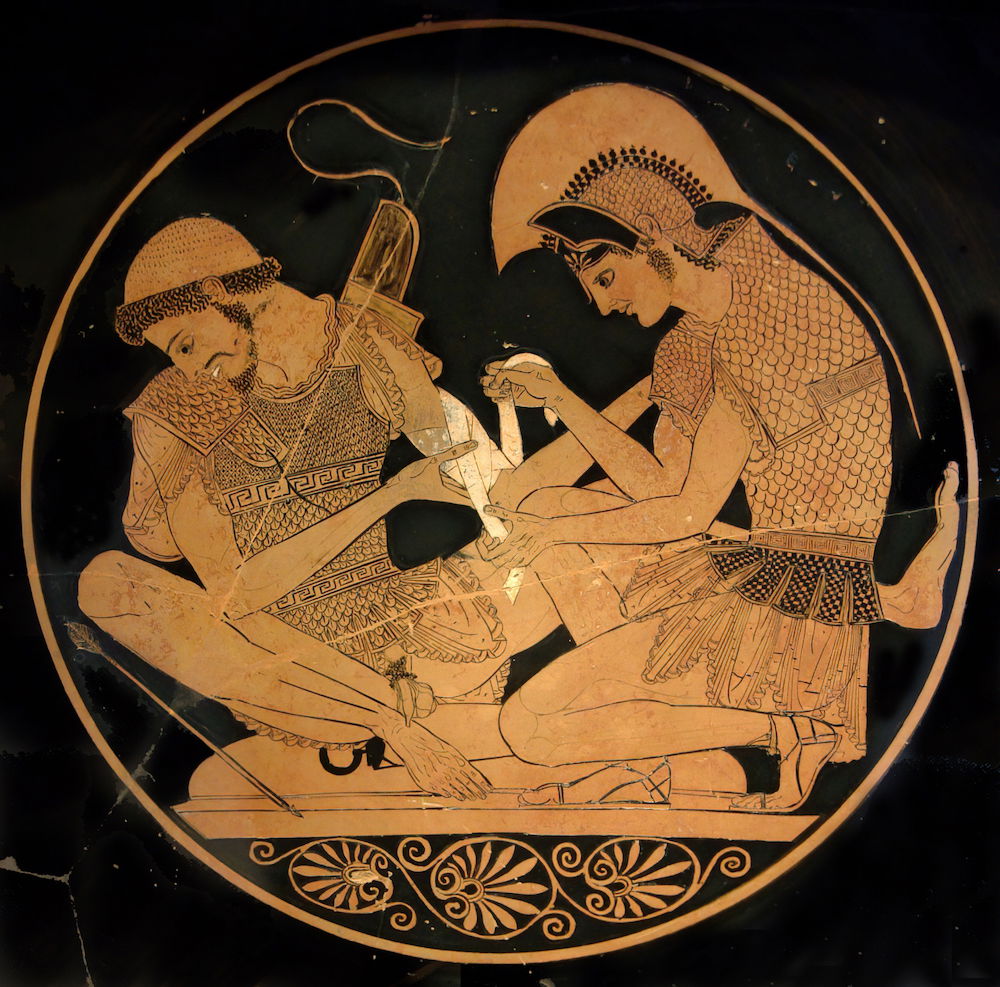
Faced with a jumble of bewildering ruins, modern visitors to Hisarlik in northwest Turkey, the site of ancient Troy, may find themselves perplexed and sometimes disappointed. The wide bay where the Greeks so famously beached 1,000 ships is gone, buried in silt from a local river, while beyond the fine sloping walls, a palimpsest of settlements spanning 4,000 years lies scarred and disfigured by the deep trench gouged by Heinrich Schliemann, its first archaeologist, during two decades of digging in the 19th century. Schliemann had been drawn to Hisarlik, and also to mainland Greece, by his passion for the Homeric poems, the Iliad and Odyssey, and his conviction that they described or reflected real societies and events, not least the decade-long Trojan War. So enthusiastic was he that when (in controversial circumstances) he ‘found’ a cache of jewellery at Troy, he proclaimed it had belonged to Helen. At Mycenae, excavating a royal grave, he lifted a gold mask and, swearing that the features beneath it had survived for an instant before crumbling to dust, informed the king of Greece by telegram: ‘I have gazed on the face of Agamemnon.’ In fact, both artefacts were earlier than the presumed date of the Trojan War: the mask by some centuries; the jewels by more than a millennium. In a sense, however, this did not matter. Schliemann had achieved what he set out to do. He had discovered key Homeric sites and shown that the poems were grounded in reality.
But what of those poems themselves, specifically the Iliad, which takes its title from Troy’s alternative name, Ilion (itself derived from the Hittite Wilusa)? Since antiquity, scholars have debated but never agreed on how it came to be written. Multi-layered Hisarlik might well serve as a metaphor for their often-contorted arguments. Most accept that the Iliad has its roots in oral poetry performed at gatherings held in the Greek ‘Dark Ages’ and perhaps earlier; some suggest that it is an amalgam, a ‘stitching together’ of shorter works made over many years; others that it is a ‘snowball’ with a core of original material expanded over generations by different hands. While classical authors believed that it was the product of one man, sometimes imagined as a blind poet from Samos, few in modern times have felt compelled to try to track down who that man might have been. Enter Robin Lane Fox. Having used topographic and literary detective work to ‘find’ Hippocrates on the island of Thasos (in his recent and brilliant book, The Invention of Medicine), he now uses his sleuthing skills to try to discover Homer, the man who he believes authored most of the Iliad.
‘Authored’, not ‘wrote’. Homer was, Lane Fox maintains, an oral poet, taught by great masters, part of a long tradition which may have stretched back to the Bronze Age. But whereas previous reciters were content to link together existing free-standing episodes to form a linear narrative, the Iliad is different, its details interlinked throughout the text, which ‘only make sense in the light of the whole’. It is partly this structure which reveals the genius of a single author who dictated his rehearsed, perfected composition to scribes versed in the newly honed Greek alphabet (which may even have been invented for this purpose). Already well known, his oral Iliad (Lane Fox’s ‘preferred guess’ is that Homer ‘first performed a version for troops who were out at war’) was the product of autopsy and experience. Based on the west coast of Asia Minor, somewhere between Ephesus and Miletus, he travelled south to Lycia and north to Troy to garner detail. But according to Lane Fox he was not simply a poet. He may have been a charioteer – ‘I like to believe he drove a racing team himself’ – a hunter, even a ‘putative gardener’. In fact, as he sharpens into focus, this Homer increasingly becomes a mirror image of Lane Fox, himself a great horseman, who once declared: ‘On my deathbed I will think of Homer, then gardens, the great women I know, and lastly my best days fox hunting. And then I’ll die.’
Like Schliemann, Lane Fox has a profound emotional connection to the poem. As a young man, he tells us, he sought to outdo Alexander the Great by running naked around ‘what I took to be the entire city’, and now ‘whenever I read [the Iliad], it reduces me to tears’. Like Schliemann, too, he seems at times to have been so seduced by the sheer power of the poetry that he is the victim of a ‘Homer Effect’, where fact and fantasy are blurred. But this should not blind us to his huge achievements in this book. While there are flights of fancy (‘I take [Homer] in my mind’s eye on an uphill walk for several hours on a crisp day in early spring, up through the crocuses which were carpeting the slopes with gold below Gargaron and on to the foot of its grey peak’), for the most part this remarkable book – scholarly yet passionate, and almost hypnotically readable – will surely stand as one of the most significant contributions to Homeric studies written for a general readership in recent years. Combining a close study of the text, analyses of similes and characters, discussion of morality and ethics, gods, women and nature, comparisons with epic poems from other cultures, and an understanding that only a lifetime of study can produce, it is a paean to perhaps the greatest poem ever written. For those still to read it, it is an exhilarating introduction; for those who know it well, an often-provocative challenge to long-held certainties. For all his flamboyance, Schliemann discovered Troy, and in this book, Lane Fox may just have discovered Homer. Even if not, his masterly survey of the Iliad, its majesty, its pathos and its unparalleled progression from wrath to pity make it a compelling companion to the poem that inspired it – a worthy Patroclus to the Iliad’s Achilles.
Homer and His Iliad
Robin Lane Fox
Allen Lane, 464pp, £30
Buy from bookshop.org (affiliate link)
David Stuttard is the author of Phoenix: A Father, a Son and the Rise of Athens (Harvard University Press, 2021).



